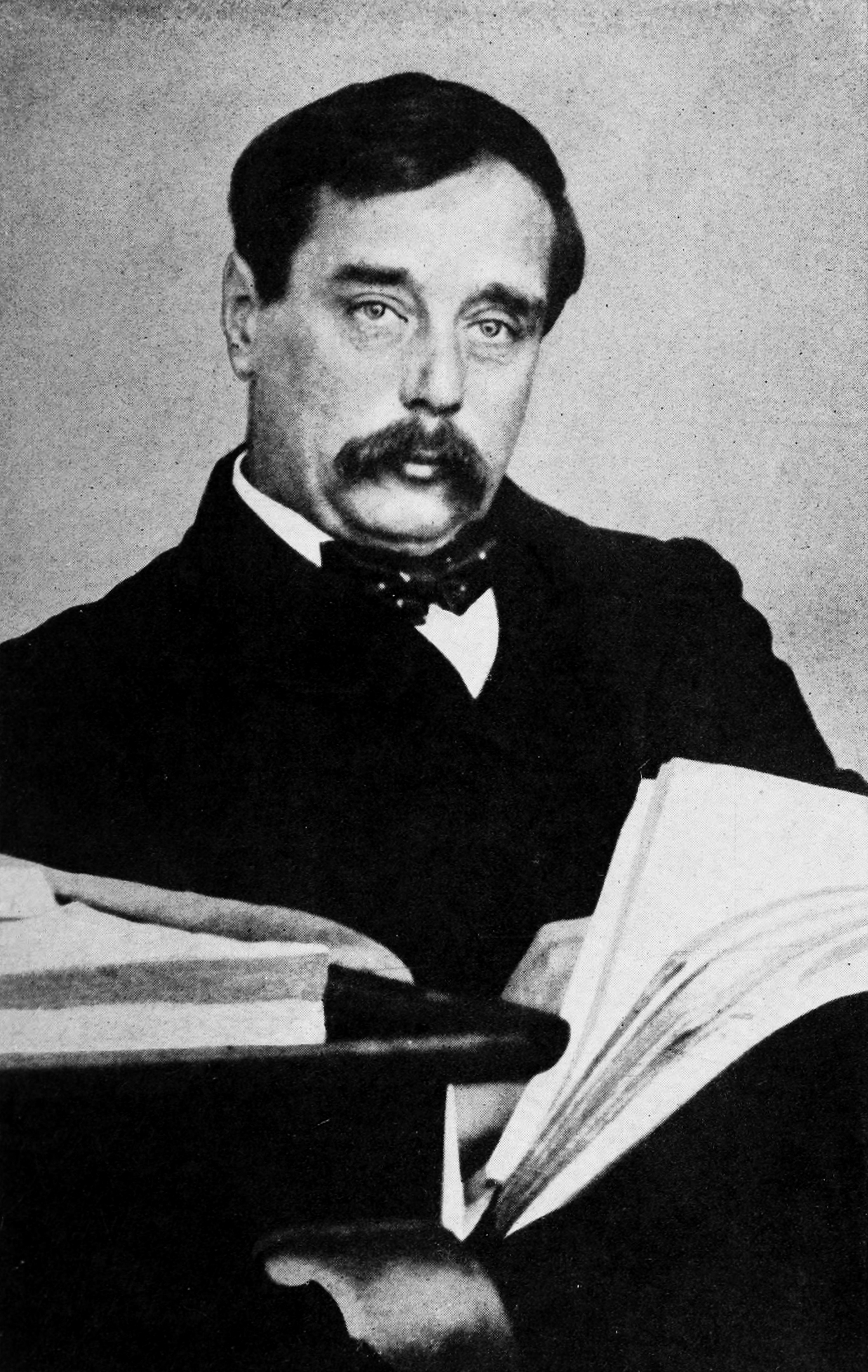“In the Modern Vein: An Unsympathetic Love Story” is a short story by the English author H. G. Wells (1866–1946), first published in Truth on 8 March 1894 under the title “A Bardlet’s Romance” and subsequently reprinted in The Plattner Story and OthersCollection of 17 short stories by H. G. Wells, first published in 1897. (1897).[1] It tells of a minor poet’s infatuation with a girl he meets at a tennis party, but who ultimately rejects him when he refuses to leave his wife for her.
The story is told as a third-person narrative by an unnamed narrator, a fellow member of the Areopagus ClubSupposed organisation of poets centred on reforming English verse, founded in the 16th century..
Synopsis
Aubrey Vair is a minor poet living comfortably enough with his wife in a little red villa in Reigate. She is “handsome, sweet, and gentle”, but Vair thinks that his wife does not understand him. Further, he has unfulfilled romantic longings, and as his genius is dwindling he feels the need to “harrow” his affections to rekindle his artistic flame. But few opportunities present themselves, as Reigate is a very moral place. Then one day at a tennis party he meets Miss Smith, a young woman recently arrived in England. She cannot play tennis and Vair has given the game up after an accident, so they naturally fall into conversation.
Soon enough the conversation turns philosophical, with Vair observing that “love is … the one true and real thing in life. It rises above reason, interest, or explanation. Yet I never read of an age when it was so much forgotten as it is now.” Miss Smith looks at him keenly. Although she is well-read, Vair is the first literary man she has met, and as many other girls have done before, takes these kind of musings as an expression of genius. They meet frequently throughout the summer, until one day Vair has an opportunity to be alone with her, and professing his love, they kiss.
As the summer turns to autumn, Vair and Miss Smith meet one evening to discuss their future. She wants him to leave his wife and elope with her, but he wants to carry on as they are, meeting in secret: “But cannot we go on, meeting one another, loving one another, without any great scandal or misery? Could we not—”, to which she replies “That would be unspeakably horrible.” After a few moments of silence, Miss Smith rises to her feet and announces that this is the end. Distraught, Vair bursts into tears.
Miss Smith takes Vair’s “damp Byronic visage between her hands”, and kissing him says “Good-bye, little man that I loved, and good-bye to this folly of love.” She leaves, and Vair trudges pensively back to his home once she is out of sight. That evening his wife has prepared fried potatoes for dinner, which Vair observes to her to have “exactly the tints of the dead leaves of the hazel.”
“What a fanciful poet it is!” said Mrs. Aubrey Vair. “Taste them. They are very nice potatoes indeed.”
Commentary
Wells himself had a “roving eye and unquenchable lust”,[2] and had many affairs throughout his lifetime, even into old age.[3]
See also
- H. G. Wells bibliographyList of publications written by H. G. Wells during the more than fifty years of his literary career.
External links
- Full text of “In the Modern Vein” at Project Gutenberg

